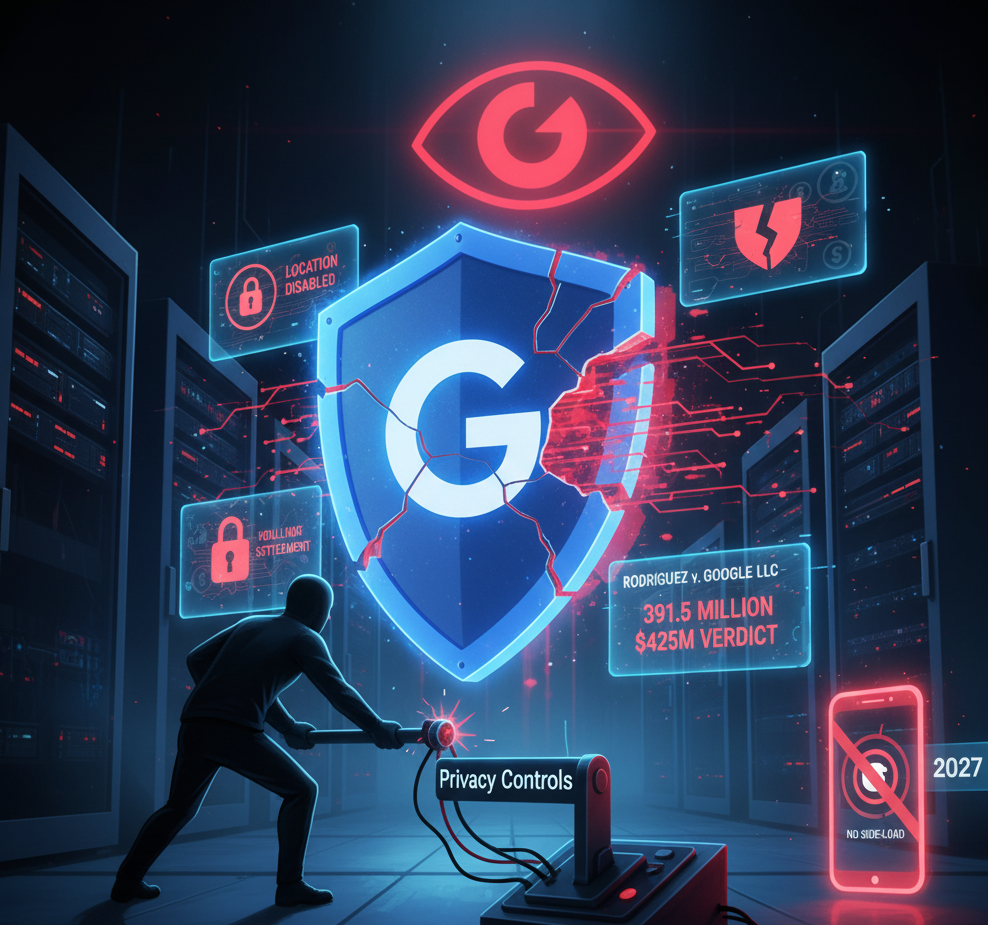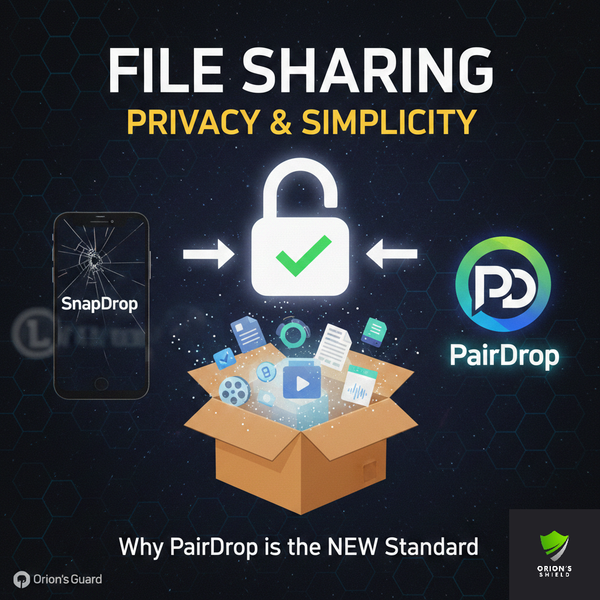The Control Illusion: When Google’s Privacy ‘Settings’ Become a Punchline

Welcome back, digital travelers. We talk a lot about guarding your data against hackers, but what happens when the giant gatekeeper who promised to protect it turns out to be the biggest threat? We need to talk about Google.
For years, the tech giant has lured us into its ecosystem of "free" services—Maps, Search, Gmail—exchanging convenience for our undivided, tracked attention. And every time the press or regulators point out their surveillance addiction, Google’s response is the same: roll out a new set of benign-looking "user controls."
The grim truth is, the control is an illusion.
Multi-million dollar settlements and damning court verdicts prove that Google’s core objective—the relentless monetization of your personal life—is fundamentally opposed to genuine privacy. Google is not a privacy service; it’s a data refinery, and your personal data is the feedstock.
The Evidence: A Pattern of Privacy Deception
The true measure of Google’s respect for your privacy isn't found in their glossy marketing, but in the court documents that have cost them hundreds of millions. These lawsuits reveal a systemic strategy to collect data, even when you explicitly say "no."
1. The Location Lie (The Multi-State Settlements)
If you wanted a simple way to stop Google from logging your every physical journey, the "Location History" toggle seemed like the obvious solution. Yet, investigations confirmed that even when users disabled this setting, Google continued to track and record their movements.
The culprit? Another setting, "Web & App Activity," which was active by default. By exploiting this setup, Google continued to quietly harvest location data from searches and app usage. This blatant deception led to a $391.5 million settlement with 40 U.S. states, essentially forcing Google to admit that its privacy promises were, for years, misleading. They paid nearly $400 million because they deceived users about their supposed control.
2. The Fake Off-Switch (The $425M Verdict)
Imagine telling a company to stop tracking your activity on other apps, only to find out the switch you flipped was nothing more than a dummy button. That’s precisely what happened in the Rodriguez v. Google LLC case.
A jury delivered a massive $425 million verdict against Google after it was proven the company saved user data from third-party apps even after consumers had toggled the opt-out switch. Plaintiffs argued that Google’s opt-out mechanism was a sham, designed to look like it respected privacy while the company continued to harvest the data for ad sales. This verdict confirmed that for Google, compliance often means putting on a show while the data pipeline runs uninterrupted.
3. Selling Your Seats to the Ad Auction (The RTB Settlement)
Beyond the obvious tracking, Google's privacy promises break down in the complex mechanics of its advertising empire. In the In re Google RTB Consumer Privacy Litigation, the issue was how Google was brokering your personal details during the real-time bidding (RTB) process for online ads.
Plaintiffs successfully argued that Google was betraying user trust by selling or sharing data with numerous ad-bidding companies, allowing them to construct detailed user profiles for personalized ads. The resulting settlement, while valued in the billions, saw Google simply agreeing to implement new controls allowing users to limit the personal data shared. In essence, it took a massive lawsuit to get Google to offer a control that should have been in place from day one.
The Future: Locking Down the Last Escape Hatch
If they can’t be trusted with your data inside their software, they are now aiming for total control over the software you can run on your device.
The beauty of the Android ecosystem, for years, has been the ability to side-load apps—installing software from any source, not just the Google Play Store. This is the last line of defense for users who want privacy-focused apps that Google might otherwise ban for cutting into their ad revenue (like certain ad-blockers or privacy-first search launchers).
But this freedom is being actively dismantled.
Google is rolling out new developer verification rules (set to be mandatory by 2027) requiring virtually every developer, even those distributing outside the Play Store, to register and verify their identity with Google using government IDs.
The impact is simple and chilling:
- Centralized Power: Google becomes the single point of authority for all Android software, eliminating projects like F-Droid and anonymous developer contributions.
- Censorship: This verification process gives Google the perfect lever to refuse service to developers of apps that challenge their business model or expose their practices.
- End of True Choice: Android will cease to be an open platform, removing the last major escape route for users committed to digital sovereignty.
The Solution: De-Google Your Digital Life
The solution isn't to complain; it's to act. By migrating away from Google's core services, you cut off the data stream that funds their surveillance empire.
| Google Service | The Problem | OrionsGuard Recommended Alternative |
| Search (Google Search) | The central hub of your tracking profile. | DuckDuckGo, Brave Search (no tracking, focused on private results) |
| Email (Gmail) | Your communications are scanned; your identity is tied to the service. | Proton Mail, Tuta Mail (end-to-end encrypted, zero-knowledge) |
| Browser (Chrome) | Built-in telemetry and deep integration with the tracking network. | Vivaldi (hardened with extensions like Privacy Badger), Brave Browser |
| Maps (Google Maps) | Logs your historical location data permanently. | OsmAnd, Magic Earth (privacy-first, based on open-source maps) |
| Cloud/Docs (Drive/Docs) | Content is scanned and stored unencrypted (by you). | Proton Drive, Nextcloud (end-to-end encryption or self-hosting) |
| Passwords (In Chrome/Android) | Ties your critical keys directly to your Google identity. | Bitwarden, KeePassXC (open-source, zero-knowledge password managers) |
| Operating System (Stock Android) | Deeply integrated tracking, reliance on Play Services. | GrapheneOS, CalyxOS (custom, hardened Android operating systems) |
The illusion of control is the most effective form of manipulation. By recognizing that Google’s privacy controls are often a sophisticated distraction, you empower yourself to build a private, secure digital fortress. Stop paying for "free" services with your privacy. Start your de-Googling journey today.




